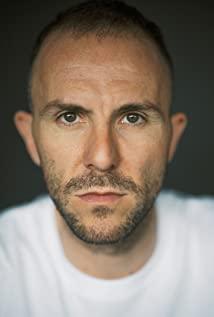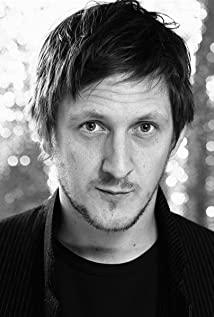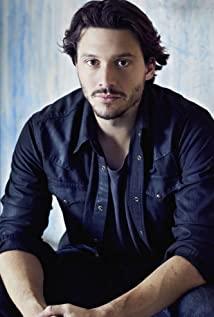The "afternoon tea" culture of the British aristocracy began in the "Victorian era"
Queen Victoria ushered in the 'white wedding era'
She is the pioneer of "painless childbirth"
Today, many rivers, lakes, deserts, waterfalls, cities, ports, streets, parks, schools, buildings, etc. in the world are named after Victoria, such as Victoria in Australia, Victoria in Canada, Victoria Memorial in Singapore, China Victoria Harbour and Victoria Park in Hong Kong, Victoria, the capital of Seychelles, Lake Victoria, the largest lake in Africa, etc.
London's sewage system and the incandescent lights on the streets of London were also realized during the reign of Queen Victoria.
In culture and science, world-renowned British author Charles Dickens and British naturalist Charles Robert Darwin were among the most influential figures living in the Victorian era.
The Queen's Development
On the evening of June 20, 1837, on the way to Kensington Palace (Kensington Palace), an emissary wearing a black armband was flying on horseback. The girl who had just passed her 18th birthday was lying on the side of her mother's bed. Her uncle, King William IV of England and Hanover, had just died. With her 11-year-old dream, the girl put down the doll, stepped into Buckingham Palace, and embarked on the road of the emperor. She is Queen Victoria.
Victoria was born on May 24, 1819 at Kensington Palace in London, England.
Father was the fourth son of King George III (1738.6.4-1820.1.29), Prince Edward, Duke of Kent and Strathearn (November 2, 1767— January 23, 1820, at the age of 53).
Her mother was Princess Victoria of Saxe-Coburg-Saalfeld, Germany (August 17, 1786 - March 16, 1861, 75 years old). She left behind two children from her first marriage, of which Victoria would later ascend to the throne of the British Empire. In order for Victoria to be born in the UK, Victoria's parents made a special trip back home from Bavaria.
Her parents named her Alexandrina Victoria, in honor of the child's Russian godfather, Alexander I, and in memory of her mother.
Victoria grew up under the "control" of her mother, and received a German education in her early years under the tutelage of her uncle Leopold I (later King of Belgium), and was influenced by liberal ideas for a long time.
She began to learn the lengthy and cumbersome court etiquette and many behavioral taboos: not to talk to strangers, not to show emotions in front of outsiders, not to break the rules, not to choose books according to her own preferences, not to eat desserts outside the ration, etc.
In large part, her good temperament is due to her good health: eating, sleeping and exercising very regularly, enjoying the outdoors to the fullest, and keeping her emotions as low as possible.
She was taught to follow her own rules of work and rest as she obeyed the constitution of the British government, and to obey the laws of health as she honored the decrees of God.
The following passage truly records her daily life at Kensington Palace:
In summer, Princess Victoria eats breakfast at 8 o'clock. Her bread, milk, and fruit were placed on a small table next to her mother's.
After breakfast, Princess Fiodora went to study with her governess, while Princess Victoria went out for an hour, either for a walk or in a carriage.
From 10:00 to 12:00, her mother will teach her.
After that, she ran around the suite, entertaining herself. The suite stretched out in a circle on both sides of the palace, and contained many of her toys.
At 2 p.m., after a brief bite to eat while her mother was having lunch, class continued until 4 p.m. Then, welcome visitors.
Afterwards she walks or rides a donkey in the garden. While her mother ate dinner, the little princess ate dinner next to her mother.
After dinner, the Princess and the nanny Ms. Brock - whom the Princess calls "Dear Poppy" - play for a while. Then, she eats dessert with everyone.
At 9 o'clock, the princess goes to bed, and again, her bed is next to her mother's.
The princess has a regular schedule. She studies, exercises regularly, eats simple food, makes the most of the fresh air outside, plays for a long time, and sleeps very well.
It seems that the venerable mother let the child leave her only to let the child fall into the arms of nature. The great mother kept a close eye on Victoria and knew her every move.
"Some people are born more noble than others, like me, but I didn't think so when I was a child. What little girl doesn't dream of growing up like a princess, but some palaces are not what you think, even palaces can become Prison cell. Mom never explained why the servants tried to eat before me, why I couldn't go to school with the other kids and couldn't read popular books."
This passage written in Queen Victoria's diary just became the beginning of her legendary life.
Queen Victoria, who successfully succeeded to the throne, was quite a failure in her debut performance on the political stage. Young and vigorous, she is often arbitrary and aggressive. As early as the early days of her ascension, Queen Victoria openly favored Whigs, and was dissatisfied with almost every prime minister after Melbourne, and even threatened Parliament with abdication at one point. Victoria deftly circumvents this skepticism by creating a way of ruling that may seem feminine to us. She rules by intuition rather than strategy, emotion rather than intellect. It turns out that for a monarchy, this is the ideal way to govern. Although the monarch loses real power, he can retain his influence through gestures and rituals. It turns out that her femininity is exactly what the monarchy needs.
What price did Victoria personally pay for this?
The writer Zweig wrote: "She was too young at that time to know that all the gifts of fate had already marked their prices in secret . " If you want to wear a crown, you must bear its weight. Since the day Victoria ascended the throne, there have been only a handful of truly happy days. When Victoria learned that she would one day be queen, she already knew that being queen would not make her life, it would only break it. "I cried a lot," she said. What awaits her is a lonely and lonely royal trap. Although such a trap also tightly grips many Victorian women, perhaps it squeezes and restrains a queen far more than ordinary people and is the most profound. Her mother knew that she would eventually fall into this trap and prepared her mentally early. Years later, when Queen Victoria was dying, she would remember what her mother told her, "You can't escape your emotions, and you can't escape your origin."
She can't escape. But she tried to define herself with her whole life, especially in her later years. Victoria paid a heavy price. She was not only a queen, but a daughter, wife, and widow. At every stage of her life, she has had to go against her own heart and make all kinds of disturbing distortions to it in order to comply with the many demands of society on women.
The Combination of Throne and Virtue
Victoria's mother and uncle Leopold had long planned Albert's marriage to Queen Victoria.
Victoria has always been cautious about her marriage. When her uncle King Leopold I of Belgium strongly recommended Victoria's cousin, Albert of the Duke of Saxe-Coburg-Gotha, Victoria neither refused nor accepted it. The meeting between the two can also be delayed. In the autumn of 1839, the Belgian king was really impatient, and took Albert directly to Buckingham Palace. Victoria and Albert fell in love at first sight.
Four months after this meeting, Victoria summoned Albert alone and prepared a marriage proposal in German: "If you can fulfill my wish (and marry me), I will be extremely happy." . Because she knew that Albert was at a disadvantage in English. She even unexpectedly gave him a ring. She later confided in her diary: "I looked at Albert and got a little emotional. He was so beautiful."
I can totally understand her embarrassment when proposing. She said that her situation was very painful because "it is a woman's privilege and a blessing to let the other party propose to her . " However, after Albert agreed, she became a shy girl in seconds:
We hugged again and again and he was so kind and affectionate. Oh! I am so blessed to be loved by an angel like Albert, beyond words! He's so perfect, perfect in every way - perfect in looks - perfect in every way! I told him I wasn't worthy of him at all and kissed his lovely hand.
This passage sounds like a Victorian heroine saying - her man is better, and she is willing to bow down to him. She convinces herself that it was Albert who made the sacrifice, so that she wouldn't feel embarrassed that what she was doing wasn't feminine enough. The roles of Queen and Wife are very different, and subordinating herself to Albert, in her mind, is the way to bridge these two contradictory roles. Over time, Albert came to believe that too—he was the giver, not the receiver.
How did Albert experience that day?
He described it this way: "Victoria expressed her love for me, gave me her hand, and I clasped it with both hands, brought it to my lips, and kissed it affectionately." Although Albert held and kissed Victoria hand, he still felt overwhelmed. He told his father: "I should be cheering at such a joyful time, but I feel sad. I don't know why." Knowing he wasn't the "emotionally exposed" type, he found: "(At the moment ) I can't believe Victoria has shown me so much emotion...really...I'm so overwhelmed." However, he was moved by Victoria's apparent intensity and her "happy and candid attitude" when she confessed to him . "I was deeply moved," he explained. Everyone in Windsor could see that Victoria "loved and attached to him and couldn't bear not seeing him" .
Historian Marina Waller pinpointed the striking differences in their personalities. Victoria is transparent, candid, and expressive by nature , so she keeps a diary. Albert is an introvert . He kept most of his thoughts in his head, and while his thinking and intelligence were easily admirable, he was a difficult person to understand and even more difficult to like. So, what did Albert see in his future wife? He clearly felt an attraction from her body. He found that she was "unquestionably better off" and that she was now plumper and more contoured than she was when she was 17 when we last met. The breasts of the young queen have been praised by many people.
Plus, Albert thought the marriage would bring him wealth. Uncle Leopold and Victoria's untimely cousin Charlotte made a huge £50,000-a-year income after marrying, and Albert is likely to expect something similar. His fiancée was furious when Parliament later voted to give him £30,000 a year. Victoria wrote in her diary: "I burst into tears of rage. What a bunch of thugs!" Yet even £30,000 a year was equal to the entire income of Albert's father, the Duchy of Coburg.
When it comes to money, Victoria is in fact the only married woman in the entire country who can control her income and property. this point is very important. Albert almost abandoned the engagement because he would be in a "very embarrassing" situation after marriage. Even now, everyone knows that he is not actually the head of the family. Albert also has to deal with the unbridled British press, which will portray him as a bull, only fit for breeding. Then, and a little bit more distressing, it was Victoria who confessed first. A London ballad sings:
Since the Queen "proposed" to her husband in person,
I think all the ladies do;
The days of their obedience shall be past,
In the past, I was always reluctant to express my heart,
Now they will all "scramble to confess"!
In other words, their roles in marriage completely reversed the natural order. The London printers would have no scruples about laughing at Albert and making as much money as possible out of it. A unique print resounded through the streets of London: "Who wants to buy a portrait of this handsome foreigner? He's going to marry our beautiful queen!"
Therefore, Albert has a lot on his mind. But at least the simple-minded Victoria was very happy. Even the average "poor girl doesn't have much freedom" when it comes to choosing a husband, she thought, and it's even harder for a princess: "The prospect is very bleak and sad!" But now she believes, and will always believe, She made this choice for herself. She chooses the handsome Albert and enjoys his care and affection. She told Uncle Leopold: "The past few days have been like a dream... I've been really, really happy."
On the night of the engagement, Albert wrote her a letter expressing what he often found difficult to express . There have been many letters of love, admonition, reproach, and anger like this, going back and forth between their rooms through the corridors of Windsor Castle, and this is the first. However, this first letter written by Albert is the most perfect, when he was still a supplicant, not a master, and everything had not yet begun . He confessed in the letter: "I hardly know how to respond to you. How am I worthy of so much love, so much affection? ... Body and soul will always be your slave, your loyal Albert."
Victoria did not cry when she was enthroned, nor did she shed a single tear when she was crowned. But that night, alone in her room at Windsor Castle, reading the first love letter she received, she burst into tears.
Because of you, I fell in love with this world.
Because of you, I started to hate this world.
In January 1840, Victoria announced in Parliament that she would soon be married to her future husband, Prince Albert Saxe-Gotha.
Although the honeymoon was only two weeks old, this undisturbed quiet time became the happiest time in the Queen's life.
The Queen's husband is a very attractive and elegant man. Knowledgeable, he is known as the "mobile encyclopedia". In addition to that, he is an excellent fencer. They are recognized as a model couple: loyal and respectful to each other, and never even said harsh words to each other that would damage the relationship.
But this happy marriage did not last long. On December 14, 1861, the 42-year-old Prince Albert died of typhoid at an early age. The Queen lost almost everything at this time.
As a woman, she lost her love and her beloved husband; as a queen, she lost her best friend, counselor, and assistant.
Since then, she has left London, imprisoned in her room, and the outside world has no meaning to her. "The world is dead," she wrote in a letter to relatives. For more than 40 years after her, black became the main color of her clothes, and she became what people call "the woman in black". Sadness, indifference, and irritability are the expressions on her face that she often wears. Missing her husband made Victoria feel at a loss and unhappy about her future life.
The loss of a loved one is the hardest blow to anyone. The independent-minded queen was more unbearable than anyone else in the face of such a situation.
Hermann Hesse said: "You are not the end of love, but the driving force of love. I dedicate this love to the flowers by the roadside, to the bright sunshine shaking in the glass, to the red dome of the church Because of you, I fell in love with the world."
Because of you, I started to hate this world.
Read more The Queen's Development Notes | If the crown is a shackle, how should I spend my life?
View more about Victoria reviews











